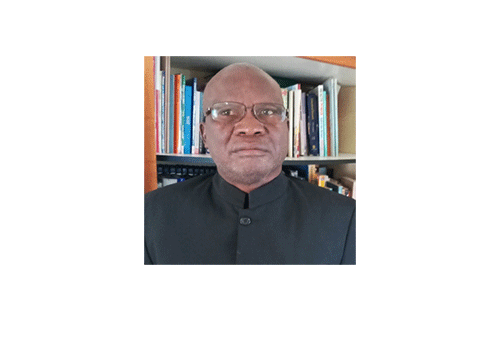Western colonial education introduced to Africa was based on certain educational principles depicting a particular philosophy of life.
However, the African communities themselves already had their way of educating their young ones based on a philosophy, which emanated from the African worldview.
Therefore, when Europeans arrived in Africa, they encountered and disrupted indigenous states that had long-established patterns of interaction within their cultural settings.
This is what Mungazi (1996) implies when he refers to Walter Wren’s surprise when he visited the coast of Guinea in 1566 and discovered that “Although the people were black and naked, they were civil”.
Barker (1999) also states that education in traditional African society has certain specific and well-defined aims that were passed on to the youth in the form of accumulated knowledge, wisdom and skills of the cultural group to ensure a smooth and easy transition into adulthood.
The old African philosophy of education emphasised social responsibility, the development of manual, artistic and intellectual skills, political awareness and most importantly spiritual and moral values aimed at producing an individual who was honest, respectful, skilled, knowledgeable, cooperative, well-versed in the community’s customs and traditions and who conformed willingly to the social pattern of community.
At independence, Namibia was supposed to adopt the model of regulated (weak or strong) dualism where the State confirms traditional governance and African customary law.
Besides the two parties enjoying their places, the political and legal systems are dual or plural systems with the state-run system on one hand and a plurality of traditional systems on the other. In addition, traditional and African customary law represent officially recognised semi-autonomous social fields Namibia failed to fall in this model implying that even after independence the country continued to disrespect traditional and African customary law.
However, the new Namibian government came up with measures that were in most cases not in line with traditional philosophy despite the constitutional provision.
Articles 8 and 19 of Namibia’s constitution allow one to enjoy, practice and promote any culture, language or tradition, provided it does not clash with a person’s rights. Article 8 emphasise respect for human dignity and no one should be subjected to torture or any degrading conditions.
Nevertheless, the authorities have been playing psychological torture games on many members of some traditional authorities.
This game has led to the frustration of some traditional leaders and as a result, has relaxed on maintaining law and order in their communities. The state of lawlessness being experienced in the country today can be blamed on the stripping away of the powers of the traditional leaders.
Divide and rule
Contrary to what the nationalists were fighting for, the new rulers perfected the divide and rule system which the colonialists were imposing on the people.
Instead of uniting people who were divided under the apartheid regime, the new elite embarked upon a programme of balkanisation of ethnic groups without following the correct procedures.
It stirred up old tribal rivalries that emanated into skirmishes, which almost cost human lives in some places.
Politicisation of the traditional authorities
The rulers have done very well in politicising the traditional institutions to such an extent that almost all traditional authorities bow to the pressure of political power.
The traditional authorities who dance to the political tune of the ruling are always given special preference.
This is demonstrated by the cordial relationship between the heads of the political party and the traditional authorities by regular and unannounced visits by the former.
The head of the ruling party always graces the traditional authorities’ festivals when invited but will decline invitations from other institutions perceived as belonging to the other side of the political fence.
This is contrary to the spirit of nationalism where every national institution should be accorded equal treatment.
Status of chiefs
Namibia as a constitutional democracy should not entertain monarchial undertones. The status of chiefs in Namibia after independence leaves much to be desired, as many have been relegated to the doldrums.
Their authority has been undermined at the expense of political power. They no longer enjoy the powers they used to have before and during the colonial period, as they are just figureheads whereas power lies elsewhere.
Namibia is blessed with diverse cultural entities and that goes with many traditional leaders. These leaders are accorded different names by the people they are leading.
Some of the titles are insinuating about the total leadership of the regions they resort in. What is surprising is that the power that be has been silent on the titles of some chiefs who regard themselves as being more superior than others.
In some corners, chiefs are named kings which is not admissible in a republic, but rulers fail to correct the situation. In some cases, some chiefs have been humiliated for their role during the war of independence, while others have been greased with fish quotas.
In the extreme cases, government had gone to an extent of creating new chiefs appointed on a political basis, a thing colonisers could not do.
This led to the puppeteering of these chiefs to the power that be and in the process failed to serve their communities as expected.
Colonisers were accused of including chiefs in the political system and awarding them accordingly, but this is exactly what the current political dispensation is doing.


